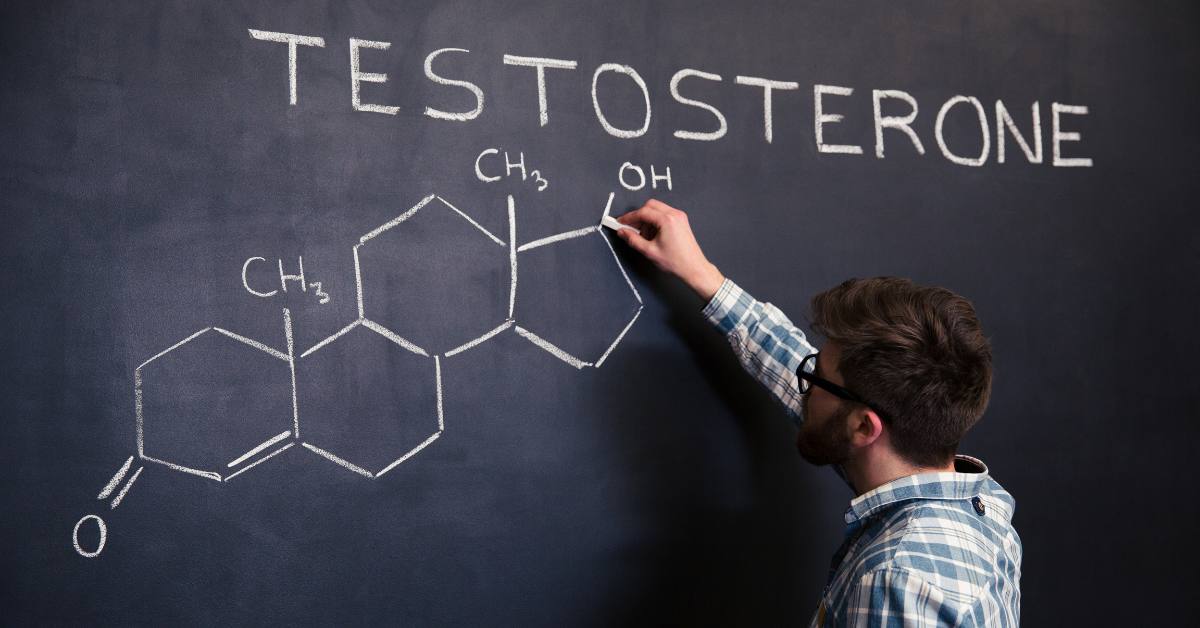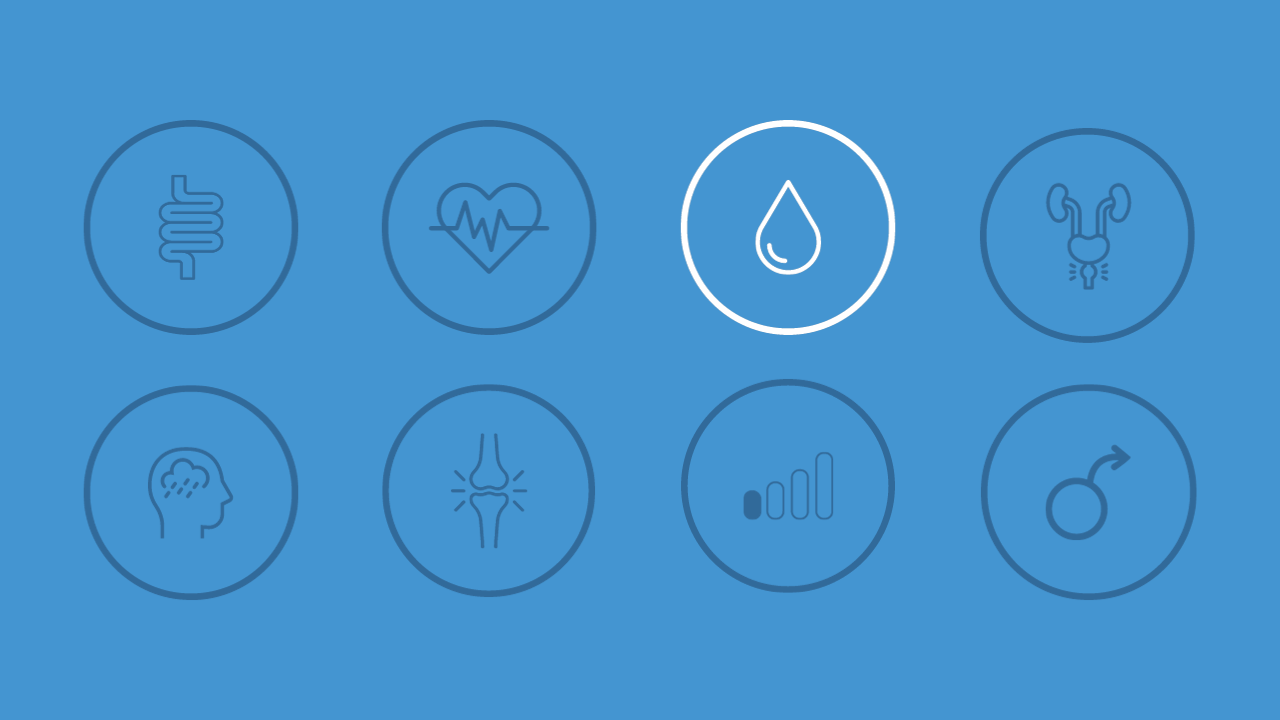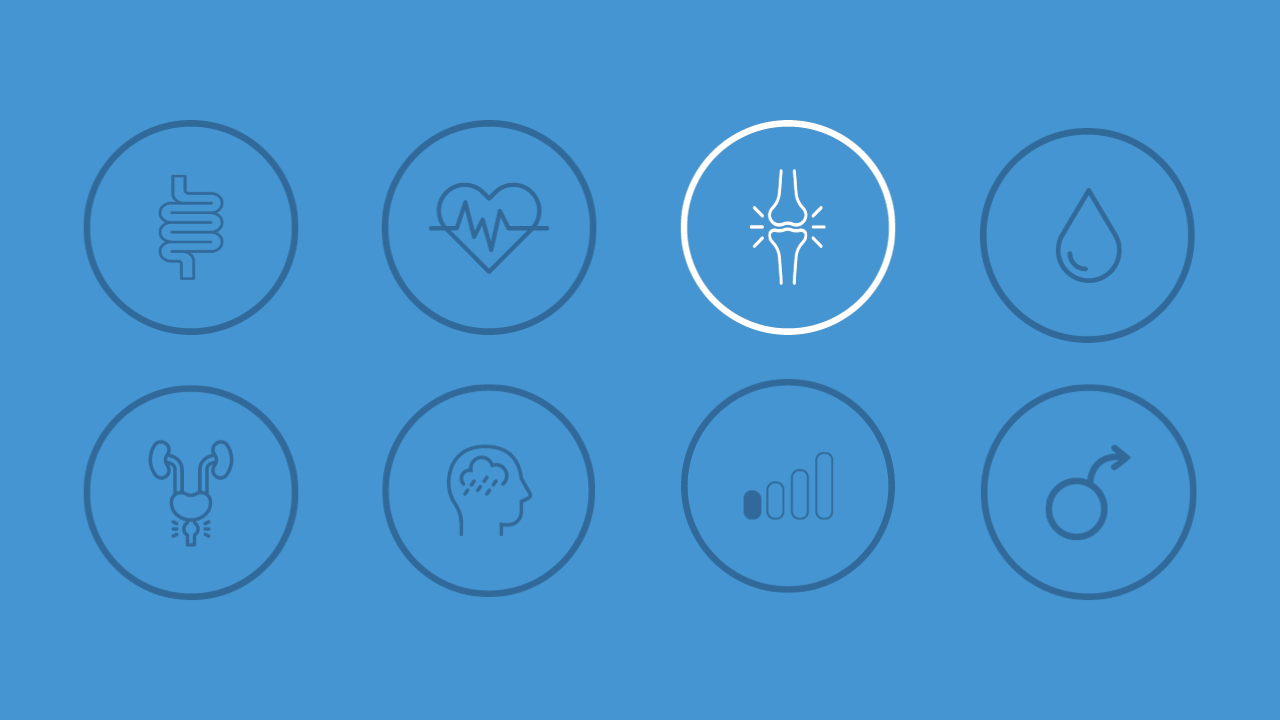Low Testosterone
Your questions answered on low testosterone in men. Including info about what levels are normal, signs of low testosterone and tips for prevention.
Medically reviewed by:

CM, OBC, MD, FRCSC, FACS, FCAHS

MD, B.Sc.
What is low testosterone ?
Testosterone is the main male hormone (“androgen”) responsible for development and maintenance of male characteristics and sperm production. Low testosterone is diagnosed through a combination of blood testing and related symptoms. In Canadian labs, the normal testosterone range is between 8.5 – 29.5 units.
If your body is not producing enough testosterone, it can lead to a decrease in energy, sex drive, strength and many other symptoms.
Low testosterone may also be referred to as testosterone deficiency or hypogonadism.
Signs & Symptoms
The signs and symptoms of low testosterone can be broad and overlap with many other medical conditions. Some men do not show any symptoms.
The most common symptoms are:
Decrease in:
- Energy and/or mood
- Exercise tolerance
- Ability to develop muscle
- Ability to lose fat tissue
- Concentration and/or memory
- Sex drive or libido
- Strength
- Increase in body weight or fat
- Absence of morning or nighttime erections
In very low cases:
- Hot flashes
- Decrease in body hair (distribution or growth)
Risk Factors
There are many potential causes of low testosterone; however, it can also occur without explanation.
Testosterone naturally decreases with age. Men in their 70s or older have a higher chance of developing it than men in their 40s or younger.
There are many other possible causative factors, including:
- Trauma or injuries to the testicles
- Infection of the testicles called orchitis
- Chemotherapy
- Alcohol abuse
- Obesity or being overweight
- Obstructive sleep apnea
- Poor sleep or shift work
- Some medications
- Some chronic medical conditions such as type 2 diabetes, kidney dysfunction, cirrhosis of the liver, HIV/AIDs.
ARE YOU AT RISK?
Learn your risk level for the most common men’s health conditions in 10 minutes with a free, confidential, and personalized report.
Diagnosis
A physician diagnoses low testosterone through a blood test and a review of symptoms. The actual lab number that represents “normal” covers a large range, and so must be linked to the presence/absence of symptoms when considering if treatment is required.
Additional tests may be required to help determine the cause of low testosterone.
Prevention
Get Active
Exercise can help improve and maintain the natural production of testosterone. An increase in muscle and a decrease in body fat and overall weight help you maintain normal levels. Aim to work your way up to 30 minutes of resistance training three times per week.
Eat Healthier
Eating an anti-inflammatory diet and maintaining a healthy body weight are important for the production of testosterone. Aim for less ultra-processed foods like cakes, cookies and chips, and add in more vegetables, fruits, lean proteins and whole grains.
Sleep Better
Getting a regular, good night’s sleep can help prevent low testosterone and has been associated with better testosterone production. Aim for 7-9 hours of sleep per night.
Drink Less
Drinking heavy amounts of alcohol has been associated with lower testosterone production. Review Canada’s alcohol guidelines for the latest recommendations on consumption.
Get Easy Tips To Reduce Your Risk
Treatment
If you have modestly low testosterone, a healthy lifestyle that includes regular exercise, good sleep, and a healthy diet is recommended to promote natural testosterone production and to maintain a healthy body weight.
If testosterone levels are still low even with healthy lifestyle changes, treatment may be recommended based on your general sense of well-being and your sexual and fertility goals.
Testosterone therapy is typically lifelong. It will likely stop sperm production and, therefore, is not administered to men trying to start a family. Some patients can also experience acne or oily skin, or male pattern hair loss.
Testosterone treatment may be provided in the form of medications, injections, gels or pellets. Any treatment needs to be carefully monitored. If testosterone levels get too high, it can cause your blood to thicken, putting you at risk for further complications.
Frequently Asked Questions
A Guy’s Guide to Eating Healthy
Make healthy eating easier with simple dietitian tips, food facts and recipes made for men.

proudly sponsored by:

Medically reviewed by:

Dr. Larry Goldenberg, CM, OBC, MD, FRCSC, FACS, FCAHS
Dr. Goldenberg is a urologic surgeon and clinical scientist, who specializes in prostate cancer research and treatment.
More about Dr. Larry Goldenberg
Dr. Ryan Flannigan, MD, B.Sc.
Dr. Flannigan is director of the Male Reproductive and Sexual Medicine Research Program in the Department of Urologic Sciences, and fellowship director for Male Reproduction, Medicine and Microsurgery
More about Dr. Ryan Flannigan



